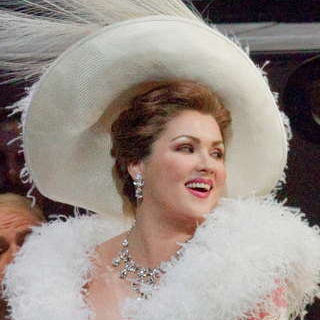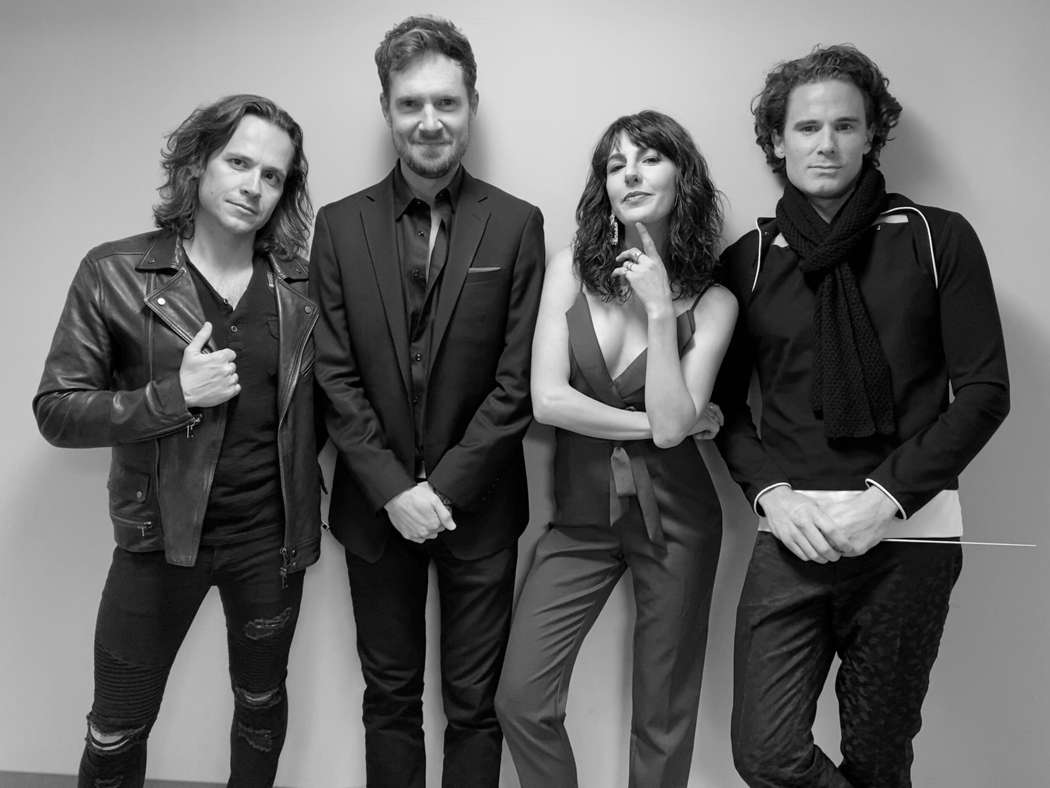ARTICLES BEING VIEWED NOW:
- Régine Crespin
- Hector Berlioz
- Ruth Railton
- Marián Varga
- Profile. A Very Positive Conductor - Paul Bodine talks to Los Angeles Opera's Music Director Designate, Domingo Hindoyan
- Abbess Hildegard of Bingen
- Yuli Turovsky
- Falla
- Concerto Classics
- Gloria DeVidas Kirchheimer
- Kid Baltan
- Deutsche Oper Berlin
- Simón Bolívar Symphony Orchestra of Venezuela
 SPONSORED: Vocal Glory - Massenet's Manon in HD from New York Metropolitan Opera, enjoyed by Maria Nockin.
SPONSORED: Vocal Glory - Massenet's Manon in HD from New York Metropolitan Opera, enjoyed by Maria Nockin.
All sponsored features >>
A Crash Between Worlds
ADAM J SACKS describes something entirely new, combining Brahms and Radiohead
Among the most recent daring experiments in avant-classical must surely be counted Steve Hackman's hybrid orchestral tone poems that fuse pop with classical. Akin to a Hip-Hop DJ formulating samples, he splices together song fragments and symphonic statements with results that amount to a wholly new work, neither clearly one nor the other. At the start of the Philadelphia Orchestra's rendition of his Brahms X Radiohead on 3 May 2022, he asserted that the program amounted to Radiohead through the lens of Brahms. Ultimately what the audience received was neither a full performance of any of the tracks from Radiohead's 1998 album Ok Computer nor any full movement of Brahms' First Symphony which premiered in 1876. Something rather more sui generis emerges, almost an entirely new musical form and genre, which tears down the wall that separates not only audiences, but how we even think of pop versus concert music.
Upon first glance it may seem like sacrilege to affix the human voice over a symphony, which may be defined as the voice of collective, crafted instruments. The passionate, affecting and even theatricality of the voice evokes, at times, oratorio, musical, or even church tent revival meeting. Yet the melodies of the Anglo-Celtic pop tradition to which Radiohead is heir are languid and rubato-like, not clipped, fixed or declamatory. And Brahms represents the apotheosis of the rigoriously formal and developmental symphonic Austro-German tradition, notoriously short on extended melody. In this musical sense they form an improbable match, but one of the ingenuities of this grafted collaboration is how the two genres can serve each other as corrective as genuinely adding something otherwise absent.
The connective tissue between the Brahms and Radiohead, as Hackman made clear, is more mood based, as there is a brooding melancholic pathos that animates both. Though he maintained Radiohead was looking ahead toward the isolating über-connectivity of the internet age, one could just as easily argue they were mourning the eclipse of rock as the hegemonic unifying genre in pop music. In that sense, both works are infused with a sense of the terminal of a reaching the end of the line. Accordingly, for both, the brooding takes the form of an intensely cerebral, intellectual rigor which so marked them both off from their respective peers. The kind of loose exaltation that Brahms ceded to his contemporary Wagner is, however, infused by the addition of the three stellar pop vocalists featured. The 'God loves his children' refrain from Paranoid Android comes across as a first rate church chorale. Keren Tayar, Bill Prokopow and Andrew Lipke each come out of either the world of pop or are dedicated boundary crossers. Ditching formal orchestral evening wear for the leather jackets and scarves of the rock world, each singer functioned as a soloist, making their voices in slack unison particularly electrifying. While there was no operatic soprano, the singer with the most classical training, Lipke, unsurprisingly demonstrated the greatest control at higher registers.

From left to right: Andrew Lipke, Bill Prokopow, Keren Tayar and Steve Hackman
Hackman managed to transform the orchestra into a 'back up band' of musicians who only a few times resorted to pop flourishes without any of the standard instrumentation of rock. Brass flourishes, percussive crescendos or child-like effects on the triangle, puncture Brahms' developmental rigidity. When examined closely, the ultimate results of wedding the movements with the songs, is unsurprisingly uneven. Within the same first movement, 'Climbing up the Walls' matches uncannily well, while 'Karma Police' is limp and not up to the power of the music. The song fragments are interspersed to punctuate after orchestral symphonic statements as commentary, as if Radiohead is narrating the Brahms for a contemporary audience. The refrain 'we are standing on the edge', from 'Lucky' which brings this experiment to a near close, may be taken as metaphorical: 'pull me out of the aircrash' is the singer's plaintive cry. Rightly called a 'creation' rather than a composition, something utterly new has been forged out of a crash between worlds, one entirely fitting for the ADHD generation and possibly a lot further down the line as well.
Copyright © 23 May 2022
Adam J Sacks,
Hong Kong, China



